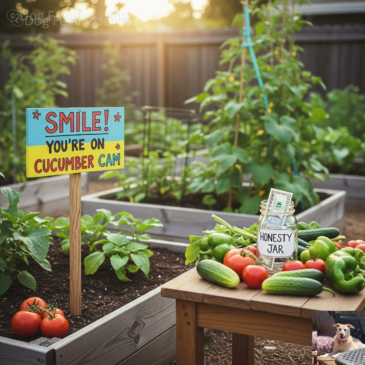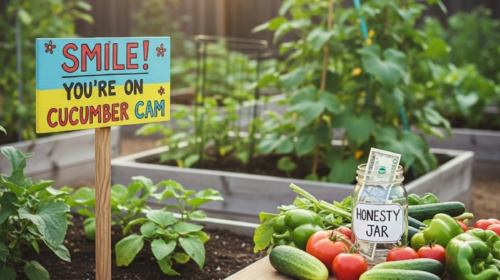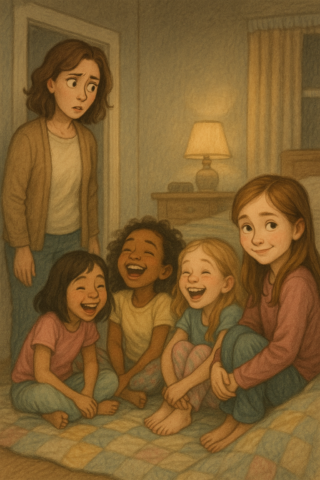for the past five years, my backyard garden had been my little slice of peace. Tomatoes, zucchinis, bell peppers, strawberries—each plant was a labor of love, nurtured from seed to bloom by my own hands. I’m not a professional gardener by any means, but there was something healing about digging in the dirt and watching something grow.
At first, the neighbors were full of compliments.
“Your tomatoes are so plump, Linda!”
“Wish I had the time to do what you do.”
And I’d smile politely, occasionally passing along a few cucumbers or a handful of cherry tomatoes in a little brown bag. I didn’t mind sharing—after all, what’s gardening without a little generosity?
But somewhere along the way, things changed.
It started small. I’d come outside and notice two or three bell peppers missing from the vine. Then it was my rosemary plant—clipped clean, as if someone had taken scissors to it. The strawberries? Barely lasted a day before someone helped themselves. At first, I blamed birds, squirrels, or maybe a particularly hungry raccoon. But then I spotted it.
Mrs. Davenport from next door, out in her floral housecoat, reaching through the fence to snip a zucchini from my plant like it was a branch of the local supermarket.
I was stunned.
The next day, it was Josh, the teenager from two doors down, casually grabbing a handful of basil as he walked past with his headphones on. No “hello,” no “do you mind?”—just a snatch-and-go like it was nothing.
I didn’t know what annoyed me more: the assumption that my garden was fair game, or the sheer shamelessness of it. I had put hours of sweat and money into building raised beds, protecting the soil, and tending each plant. It wasn’t a community garden—it was my garden. But confronting people felt awkward and petty. I didn’t want to be that neighbor.

So instead of starting a war, I decided to get creative.
One Sunday, I went to the local craft store, picked up a handful of cute wooden signs, and painted them with messages like:
“Pick your own? That’ll be $1 per tomato.”
“Smile! You’re on Cucumber Cam.”
“This isn’t Whole Foods. Ask before you pick.”
Then I installed a very visible dummy security camera pointed right at the garden. The lens wasn’t connected to anything, but it looked intimidating enough.
I also set up a small produce stand—just a simple table—with a mason jar labeled “Honesty Jar” and a sign that read:
“Love the garden? Great! Please leave a donation if you pick anything. $1 per item. Thanks for supporting local dirt and sweat.”
At first, I didn’t know what to expect. Would people laugh? Get mad? Ignore it entirely?
To my surprise, something incredible happened.
People stopped raiding the garden. A few neighbors came over to apologize and even left coins in the jar. Mrs. Davenport brought me a slice of her famous lemon cake as a peace offering. Josh mowed my lawn without asking. And soon, others started coming to the garden not just to take, but to talk.
“Your lettuce is looking great—what fertilizer do you use?”
“My daughter wants to start growing herbs. Can you help?”
It went from awkward to awesome.
The Honesty Jar didn’t make me rich, but it added up—enough to buy new seeds and a few better tools. But more importantly, it changed the dynamic. People no longer treated my garden like a free-for-all. They saw it for what it was: someone’s hard work. Someone’s care.
And me? I learned that setting boundaries doesn’t mean shutting people out. Sometimes, it’s about showing people how to respect what you’ve created—without anger, without resentment, and with a bit of humor.
Final Thought:
Generosity should never be mistaken for obligation. When people forget to value what you’ve built, a little creativity—and a few painted signs—can remind them that respect, like a good tomato, is best grown with care.


